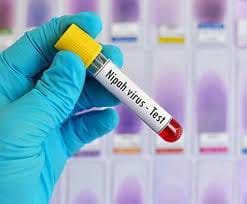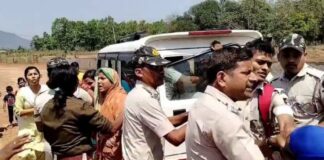Bhubaneswar: One more case of Nipah infection has been confirmed in Kerala’s Kozhikode district taking the tally to six. State health minister Veena George’s office said that a 39-year-old man has been confirmed with the Nipah virus after his samples turned positive.
He was under observation in a hospital. He had sought treatment at a private hospital where Nipah-positive affected were treated for other ailments earlier, it said in a statement on Friday.
The virus strain seen in the state was the Bangladesh variant that spreads from human to human and has a high mortality rate, though it is less infectious, the government has said, according to news agency PTI.
Here’s what is being done
• The ICMR has delivered the antibody requested by Kerala to combat the deadly virus. A mobile laboratory was also sent to ground zero to enable the state to test samples.
• The ICMR’s National Institute of Virology (NIV) in Pune sent its mobile BSL-3 (Biosafety Level-3) laboratory to Kozhikode to test samples for the virus in the district itself after five cases, including two deaths, were recorded.
• A five-member central team comprising experts from the National Centre for Disease Control, RML Hospital and NIMHANS has been stationed in Kerala to take stock of the situation and assist the state government in the management of the Nipah infection.
• Samples will also be collected from bats to check for the virus’ presence.
• Additionally, a fully-equipped mobile virology testing laboratory of the Rajiv Gandhi Centre for Biotechnology (RGCB) was dispatched to the northern Kerala district to strengthen virus testing and detection.
• The district administration has already declared a holiday for educational institutions in Kozhikode on Saturday (September 16), in addition to Thursday and Friday.
• George said the state has been vigilant and Kozhikode’s neighbouring districts — Kannur, Wayanad and Malappuram — should also be cautious.
• Around 11 wards in Kozhikode district were declared as containment zones till Wednesday evening.
• The medical and health services department director has issued an advisory in this regard to the principals of all medical colleges and chief medical and health officers of all districts. The department has also issued an advisory for health workers.
There are no vaccines to prevent or cure the infection, which has a mortality rate of between about 70 per cent. The usual treatment is to provide supportive care. Infected people initially develop symptoms that include fever, respiratory distress, headaches, and vomiting, according to World Health Organization (WHO). Encephalitis and seizures can also occur in severe cases, leading to coma.
In 2018, an outbreak in Kerala claimed 21 lives, with other outbreaks in 2019 and 2021.








